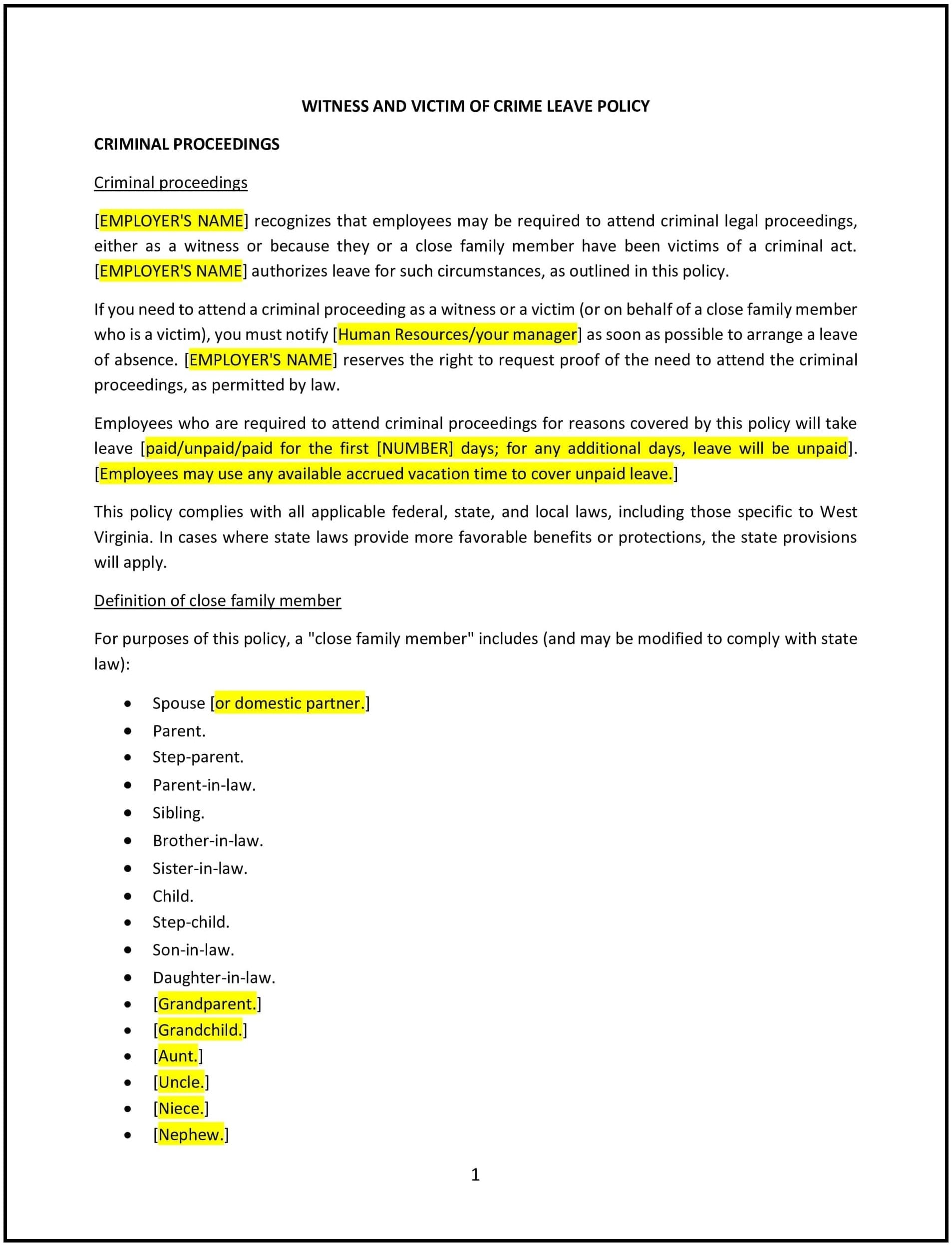Witness and victim of crime leave policy (West Virginia): Free template
Got contracts to review? While you're here for policies, let Cobrief make contract review effortless—start your free review now.

Customize this template for free
Witness and victim of crime leave policy (West Virginia)
In West Virginia, a witness and victim of crime leave policy outlines guidelines for employees needing time off to participate in legal proceedings as a witness or victim of a crime. This policy ensures that employees can fulfill their civic duties or manage legal obligations without fear of workplace retaliation while aligning with state and federal labor laws.
The policy defines eligibility, leave duration, notification requirements, and job protection measures for employees.
How to use this witness and victim of crime leave policy (West Virginia)
- Define eligibility: Specify which employees qualify for leave, such as those subpoenaed as witnesses or directly involved as victims in legal proceedings.
- Outline leave procedures: Provide steps for requesting leave, including advance notice and documentation, such as subpoenas or court orders.
- Address leave duration: Clarify the maximum duration of leave allowed, subject to the specific circumstances of the case and applicable laws.
- Emphasize job protection: Reaffirm that employees taking leave under this policy are entitled to job security and protection against retaliation.
- Support compliance: Ensure the policy aligns with West Virginia labor laws and federal regulations, including protections under the Victims of Crime Act.
Benefits of using a witness and victim of crime leave policy (West Virginia)
- Supports civic duties: Enables employees to participate in legal proceedings without workplace repercussions.
- Promotes compliance: Promotes adherence to West Virginia labor laws and federal regulations protecting employees’ rights.
- Enhances workplace morale: Demonstrates the organization’s commitment to supporting employees during challenging times.
- Reduces conflicts: Provides clear guidelines for managing time off related to legal obligations, minimizing misunderstandings.
- Protects employees: Reassures employees that their roles and responsibilities will remain secure during approved leave.
Tips for using a witness and victim of crime leave policy (West Virginia)
- Communicate the policy: Share the policy with employees during onboarding and ensure it is accessible for future reference.
- Train managers: Provide supervisors with guidance on handling leave requests and ensuring compliance with legal protections.
- Maintain confidentiality: Handle all leave requests and related documentation with sensitivity and confidentiality.
- Document leave: Keep records of leave requests and approvals to ensure transparency and compliance with the policy.
- Review periodically: Update the policy to reflect changes in West Virginia laws, federal regulations, or organizational practices.